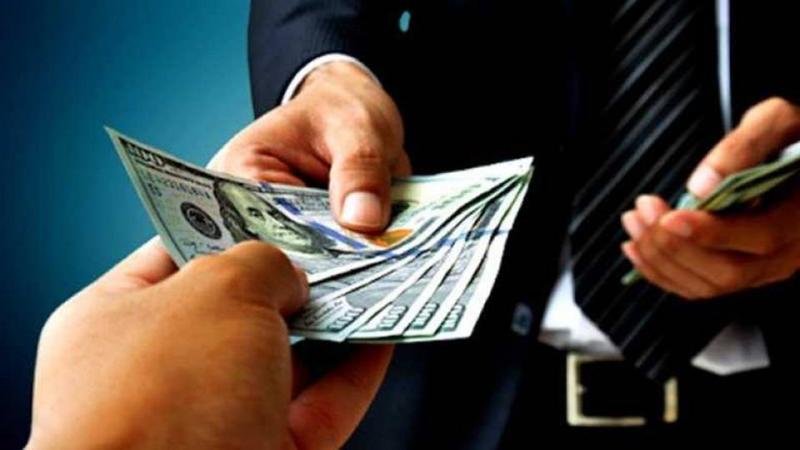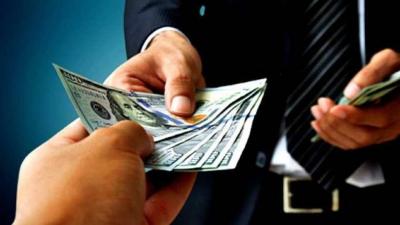The days that have passed in Lebanon are not ordinary; the year 2022 brought severe economic repercussions, along with political stagnation that resulted in a vacancy at the political level, exacerbating the rates of economic and living collapse expected to be inherited by the new year. What awaits us economically, whether regarding the exchange rate, deposits, or price instability?
Member of the "Strong Republic" bloc, economist and MP Razi Al-Haj believes it is "essential not to prolong the presidential vacancy at the beginning of 2023, as achieving reforms is difficult without the regularity of constitutional institutions. Therefore, the beginning of 2023 must be marked by the election of a new president, followed by the swift formation of a government." Al-Haj stated in an interview with "Nidaa Al-Watan": "We are in urgent need to launch the economy; it is time for all those responsible for what is called the 'economic recovery plan' to candidly inform the people. This is our repeated request in Parliament; without economic growth, we cannot achieve economic stability, restore confidence in the economy, or return deposits to their owners. Hence, the key to the solution lies in a clear and explicit economic plan, without distortion in vision, goals, or implementation methods."
**Political Hurdles**
He considers that "the fundamental problem lies in politics, which acts as an obstacle to economic growth, not the reverse." He emphasizes "the necessity of removing obstacles to move towards an easy plan titled 'Launching the Economy,' to find a way to finance the economy by allowing the private sector to borrow again. To achieve this, banks must finance the economy in a normal manner and propose many suggestions, but all this is linked to the regularity of political life. As long as there is no new president and no legislation, the crisis will extend, complicate, and distort the economy in Lebanon."
**Three Pillars for the Solution**
Al-Haj insists that "the solution relies on three essential pillars: the election of a new president, the formation of a new government, and the establishment of an economic plan based on economic reforms. Additionally, the parliamentary council must be active and support the new government in terms of legislation and oversight."
**Continuous Deterioration of the Lira**
Regarding the lira, he sees a "bleak picture" and warns that "lack of economic growth and obstructed banking work will negatively affect circumstances in such a way that there will be no ceiling on the dollar, leading to a continuous decline of the Lebanese lira, which he considers extremely dangerous. The demand for dollars exceeding supply means more control of the black market in this sector. Furthermore, there is the smuggling of dollars out of Lebanon across borders; Lebanese cannot finance the Syrian economy."
He mentions that "the central bank cannot intervene to curb the increasing demand for dollars, and all these factors will lead to further collapse of the lira. Here, the solution lies in restoring monetary policy order in Lebanon, based on reconstructing the central bank's reserves through a banking system. This requires an agreement with the International Monetary Fund and other financial institutions that lend in hard currency, thus contributing to reconstituting the central reserves of the central bank, which will help improve the situation of the lira, even slightly, and putting it under a flexible and managed system. We do not wish to return to the idea of fixing the exchange rate; it is a flawed concept. All we want is to avoid rapid fluctuations in the exchange rate in a short time."
**Restructuring Banks is Essential**
Regarding the banks, he insists that "it is necessary to restructure them, particularly concerning their obligations towards depositors to find a way to return people's deposits at their actual value, assuring them that their money exists, but withdrawing it will take time. However, this requires trust, which depends on multiple criteria and a series of complementary measures. We cannot discuss recovery in the banking sector without addressing economic recovery, without a stable exchange rate, and without a clear financial policy of the state with a budget free of deficits, in addition to resolving infrastructure issues (electricity, telecommunications, and internet). There must always be an integrated approach regarding monetary, financial, and investment policies."
**Deposits Issue**
He clarifies that "for the 'restricted' deposits that existed before October 17, they are performing their role within the joint committees to find solutions for them. According to the law, they are deposits, and the committees must reassure people that when 'capital control' is enacted, they will be able to access their deposits at their actual value."
**IMF Agreement**
Concerning the agreement with the IMF, he points out that "if we have a president of the republic and an active, functioning government working quickly and earnestly to re-evaluate the economic plan to make it comprehensive, then we will be able to agree with the IMF. However, the problem lies in the political will. We do not see serious political will to elect a president to restore regular political life. This indicates the stagnation present among some political parties." He confirms that "all factors are interlinked and influence each other and notes that "as long as the exchange rate is so volatile, oversight will become more difficult, inflation will record a significant increase, and purchasing power will sharply decline. All of this will affect the business environment, consumption, and social classes, especially the middle class."
**Returning Rights to Public Sector Employees**
To restore public sector employees' rights, he believes that "the public sector must be restructured by retaining employees who deserve to stay and dismissing those not needed."
**Social Distortion**
Socially, Razi Al-Haj states, "there is a significant distortion in social classes today, which contributes to changing the nature and structure of social classes; the middle class is nearly disappearing, replaced by a poor class," highlighting the emergence of some new wealthy individuals who benefit illegitimately from the crises we experience.
In conclusion, MP Razi Al-Haj sees that "what awaits us is a difficult year, but what is required is resilience, planning, and working with determination and persistence."
**State Hindrance to the Private Sector**
Regarding the private sector, MP Razi Al-Haj considers it "a part of the overall regularity; it is currently suffering because the state contributes to obstructing its work rather than facilitating it. Therefore, we must move towards digital transformation." He notes that he is working in this area through the proposed law to establish a National Agency for Digital Transformation and to establish a legislative framework for digital transformation in Lebanon, in addition to other laws we are working on to enable the private sector to borrow from banks and international financial institutions, allowing it to invest.




